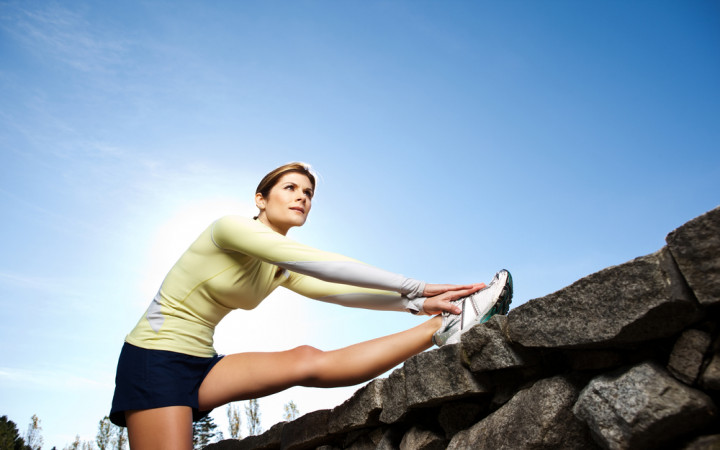Today’s Wonder of the Day was inspired by Jade from dublin, OH. Jade Wonders, “Why do we stretch?” Thanks for WONDERing with us, Jade!
What's your favorite class of the day? For some, it's math. Others prefer language arts or science. And, of course, there are those who can't wait for lunch and recess!
But what about physical education? You might call it “P.E." or gym for short. Do you like the chance to play games and exercise during the school day?
If your school is like most, your gym teacher probably starts out class having you do some warm-up exercises, like jumping jacks. You might also do some light stretching. Have you ever WONDERed why you do that? Why not just start playing a game right away?
Gym teachers have you warm up and stretch before exercising for the same reason that professional athletes take time to warm up and stretch before practice or a game. Stretching helps prepare your body for the exercise it's about to get.
Before you stretch, it's important to warm up first. Warming up helps raise the temperature of your body and your muscles so they'll be ready for exercise and prevent injuries.
Warming up also increases your heart rate, gets more blood and oxygen flowing to your muscles, and prepares your body to burn more energy. Usually five to ten minutes of warming up is sufficient. You can warm up doing the same thing you'll be doing for exercise, just at a slower pace. So if you're getting ready to run, walk for 5-10 minutes first to warm up.
After your body is warmed up, it's time to stretch. It's important to remember to warm up first, because stretching "cold" muscles can lead to injury. If your muscles are warm, though, stretching properly can reduce injuries and give you better flexibility, range of motion, posture, and coordination.
When you stretch, make sure you're doing it properly. Stretching should never hurt, so be sure to stop if you start to feel pain as a result of stretching. Holding your stretches for 10-30 seconds helps your muscles lengthen. Try not to bounce when you stretch, as this can damage your muscles.
Keep breathing during your stretches. Proper breathing will make sure that your muscles get the oxygen they need during stretching. Always make sure you stretch both sides of your body equally. It may be natural to focus on your dominant side, but you should focus on stretching all your muscles equally.
If you play sports, ask your coaches to recommend specific stretches that target muscle groups that you'll use often in the sport you play. In this way, you can better prepare your body for the specific type of exercise it's about to get.
When you're done exercising, it's important to cool down. Stretching is an important part of the cooling down process. Stretching after a workout helps to avoid tired, stiff, and sore muscles by relaxing them before returning to a normal pace.




